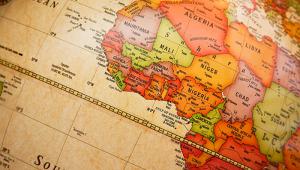The analysis from Jubilee Debt Campaign, based on IMF and World Bank databases, found that the average government external debt payments, across the 126 developing countries with available data, have increased from 6.7% of government revenue in 2014 to 10.7% in 2017.
This marks an increase of 60%. In 2004, such payments were 12.6% of government revenue.
Tim Jones, economist at the Jubilee Debt Campaign, said: “Debt payments for many countries have risen rapidly as a result of a lending boom and fall in commodity prices.
“The situation may worsen further as US dollar interest rates rise, and as other central banks reduce monetary stimulus.”
He added: Debt payments are reducing government budgets when more spending is needed to meet the Sustainable Development Goals.”
The 15-year Sustainable Development Goals were adopted by countries across the world in 2015, with the aim of ending poverty, protecting the planet and ensuring a more equal distribution of wealth.
Jones continued: “Where there are debt crises, the risk is that the IMF will bail out reckless lenders, and the debt will remain with the country concerned.
“Instead, reckless lenders need to be made to bear some of the costs of economic shocks through lower debt payments, allowing governments to maintain spending on essential services.”
The increase follows a lending boom due to global interest rates being low and external loans to developing countries almost doubled from $200bn per year in 2008 to $380bn in 2014, the campaign group said.
The loans have since fallen back to between $300-350bn per year from 2015 to 2017, but is still “well above levels seen prior to the global financial crisis”, it said.
There has also been a fall in global commodity prices, which has reduced the income of governments that rely on commodity exports for earnings, especially Ghana, Mozambique, Angola, Chad, Gabon and Laos.
A number of countries have had high debts for a many years, even decades, but have never been allowed into debt relief schemes, including Lebanon, Jamaica, Grenada and Sri Lanka, the analysis said.
The Jubilee Debt Campaign is a UK charity working to end poverty caused by debt.







